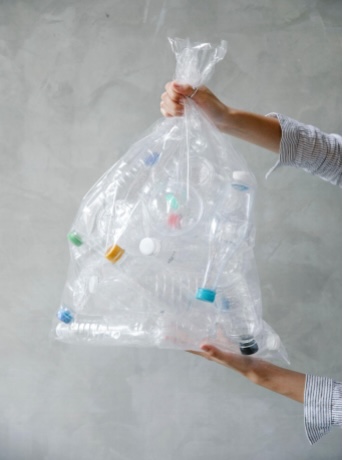Benefits of Starting a Plastic Recycling Company
Starting a plastic recycling company can be an incredibly lucrative and rewarding business venture. Not only does it provide an opportunity to reduce environmental harm, but it also offers a way to generate profit while doing something positive for the planet.
Plastic waste has become one of the most serious environmental problems in our world today. It is estimated that approximately 8 million tons of plastic are dumped into the ocean each year, causing widespread harm to marine life and ecosystems. By starting a plastic recycling company, you can help mitigate this issue by collecting and transforming discarded plastics into new products or packaging materials with significantly less environmental impact than producing them from raw materials.
In addition to its environmental benefits, starting a plastic recycling company also offers several economic advantages. For starters, you will save money on sourcing materials as many recyclable plastics are available at no cost or at very low prices compared to virgin resin products. Moreover, your costs may be further reduced by taking advantage of government grants and other incentives associated with recycling activities such as tax credits or rebates for energy efficiency investments. Additionally, because recycled plastics have fewer manufacturing steps than their virgin counterparts do – meaning less energy is used in production. Take the first step towards a greener future and click the link https://tidy.com.sg/type-of-services/disposal-recycling/.

Steps to Start a Plastic Recycling Company
Starting a plastic recycling business can be an incredibly rewarding experience both financially and for the good of the environment. But, like any other business, it does require quite a bit of planning and preparation before jumping in. Here are some steps to take if you’re considering launching your own plastic recycling company.
- Research Your Local Regulations:Every state has different laws and regulations governing businesses in their jurisdiction, so it’s important to research local regulations before starting your own plastic recycling business. This will help you understand what kinds of permits or licenses you may need to operate as well as potential restrictions on where and how you can run your business.
- Find Your Suppliers:As with any type of business, having reliable suppliers is essential for success in the plastic recycling industry. You’ll need to find both primary suppliers who provide raw materials for reuse as well as secondary suppliers who supply recycled products that you can re-sell or use in the manufacturing process for new products that your company produces.
- Secure Financing: Starting a new business requires capital investments upfront so make sure that you have secured sufficient financing from investors or lenders before launching your new venture into the world of plastics recycling.
Challenges of Starting a Plastic Recycling Company
Starting a plastic recycling company can be a rewarding business venture that can provide an eco-friendly service to many different industries. However, starting any business involves overcoming several challenges and this is especially true when it comes to creating a successful plastic recycling company.
The first challenge you will face is finding the right location for your plastic recycling facility. It needs to be accessible to the public, as well as close enough to industrial sites where materials can be collected from. You will also need access to equipment and resources that are essential for the operation of your business such as sorting machines, balers and shredders. The cost of leasing or buying these items must also be taken into account when considering the start-up expenses associated with opening a plastic recycling company.
Another challenge is managing customer expectations and ensuring that all waste plastic material received is processed according to strict regulations set by governing bodies in order for it to remain eligible for collection and reuse in other products or applications. Proper training must also be given to employees so they are aware of how best handle hazardous materials safely while adhering strictly with environmental laws regarding waste disposal.
Strategies for Success in the Industry
Are you looking for a way to become successful in the industry? The key to success is knowing which strategies work best for your particular industry and having the discipline to stick with them. Here are a few strategies that can help you reach your goals.
- Networking:In most industries, networking is essential for success. It allows you to build relationships and find new opportunities. Make an effort to attend conferences, join professional organizations, or even just talk with people in your field. This will help expand your network and open up new possibilities for success.
- Set Goals:Without clear goals, it can be difficult to measure progress or stay motivated throughout the process of achieving success in the industry. Take some time to set short-term and long-term goals that are specific and attainable so that you have something tangible to work towards each day.
- Stay Up-to-Date:Technology changes quickly in many industries, so it’s important that you stay up-to-date on trends and developments within your field if you want to remain competitive and successful over time. Consider attending seminars or workshops related to your industry regularly as well as reading relevant articles online or off so that you remain aware of changes within your sector.
Conclusion
The plastic recycling company is a great way to help protect the environment and reduce our dependence on landfills by reducing the amount of plastic waste that goes into them. It also provides an opportunity for companies to save money by reusing and repurposing their plastic materials. With continued support and awareness, this type of business can become more widespread in the future, allowing us to take advantage of its many benefits.


